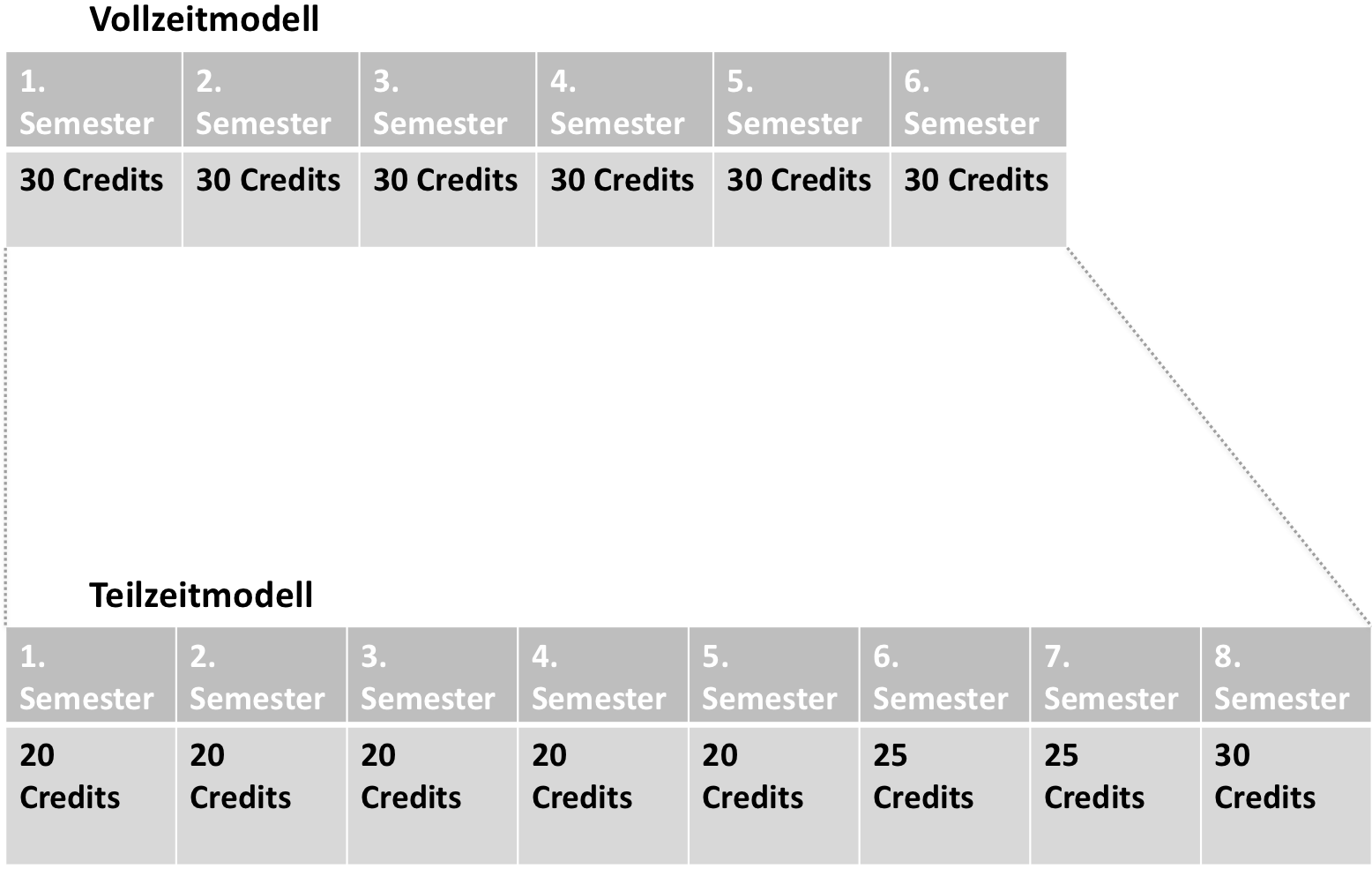Part-time study
What constitutes a part-time study program?
Both Bachelor’s and Master’s study programs can usually be completed full time or part time at the University of Zurich. Please read the following section thoroughly so that you know what aspects to be aware of. In the full-time model, you concentrate primarily on your studies and mostly follow the standard curriculum set out in the program regulation. As a part-time student, you complete fewer modules (lectures, courses, etc.) per semester than in a regular full-time program. This makes the part-time option an attractive alternative for many students, enabling them to study at college or university alongside their job or private caretaking duties. When matriculating at UZH, there is no requirement for special enrollment as a part-time student. This gives students the freedom to adjust their courseload each semester according to their needs. For example, this would allow students to start their studies in part-time mode and then later switch to full time to finish up their final semesters. Usually the time needed to complete a degree is longer when opting for part-time studies.
The following is an example of what a part-time program might look like compared to a full-time program:
What should part-time students be aware of?
Part-time programs allow students to combine their studies with other activities. However, students should be aware that not all programs are conducive to being done part time. When deciding to do a part-time program – which generally take longer to complete – it is very important to assess your workload and plan your studies in advance. Therefore, we recommend familiarizing yourself with the guidelines and restrictions for your program before you begin (during the planning phase for your studies).
- Course offering rhythm: Be aware of when and how often certain courses are offered. Some modules are only available in the fall or spring, while others are offered every semester. You will also need to check whether the modules involve a one- or two-semester requirement.
- Assessment level and program structure: Inform yourself about the structure of your program, in particular about which modules are mandatory and what prerequisites there are for certain modules. It might be the case that you have to complete certain modules before being able to register for other modules. The different phases of your program are also important. If you have to complete an assessment level at the beginning of your program, it is often recommended that you concentrate on your studies during this period for quality reasons, for example in psychology or psychiatry. The duration of your studies can also be important. Students in the Faculty of Business, Economics and Informatics, for example, have to complete their assessment level within four consecutive semesters. Furthermore, any ECTS credits acquired from this faculty can only be counted towards a degree within five years of completion. More information can be found on the website and in the program regulation of the Faculty of Business, Economics and Informatics.
- Extending the duration of your studies: Part-time students sign up for fewer modules, take fewer exams and earn fewer ECTS credits, all of which extends the time needed to complete their studies. If during the course of your planning it seems like you might exceed double the standard period of study, please get in touch ahead of time with your faculty’s student affairs office. Depending on the faculty, you will be required to submit an application to extend your study period.
- If your study program involves multiple disciplines, these rules might differ between the minor and major!
- Loans and scholarships: If you receive government scholarships, for example from the canton or the German government, there may be consequences to extending your study period. Be sure to clarify this with the responsible authorities (cantonal scholarship office, student support organization in Augsburg, etc.). Our colleagues from the Student Financial Aid Office would also be happy to assist you.
How can I find the right balance between part-time studies and my other obligations?
In order to make your part-time program as suitable as possible and to prevent becoming burnt out or overloaded, you should calculate the work required for your studies in the planning phase. In order to estimate the time required per semester and for your studies as a whole, you can use the corresponding full-time study program as a basis for your calculations. The standard full-time curriculum foresees that students earn 30 ECTS per semester. This is equivalent to a total workload of around 900 hours per semester. A Bachelor’s program involves 180 ECTS and lasts six semesters for full-time students. A Master’s program involves 90 or 120 ECTS (180 ECTS for medicine and chiropractics) and lasts three to six semesters for full-time students.
Get in touch with your academic advisor if you have specific questions about studying part time or if you need assistance with planning your part-time studies.
